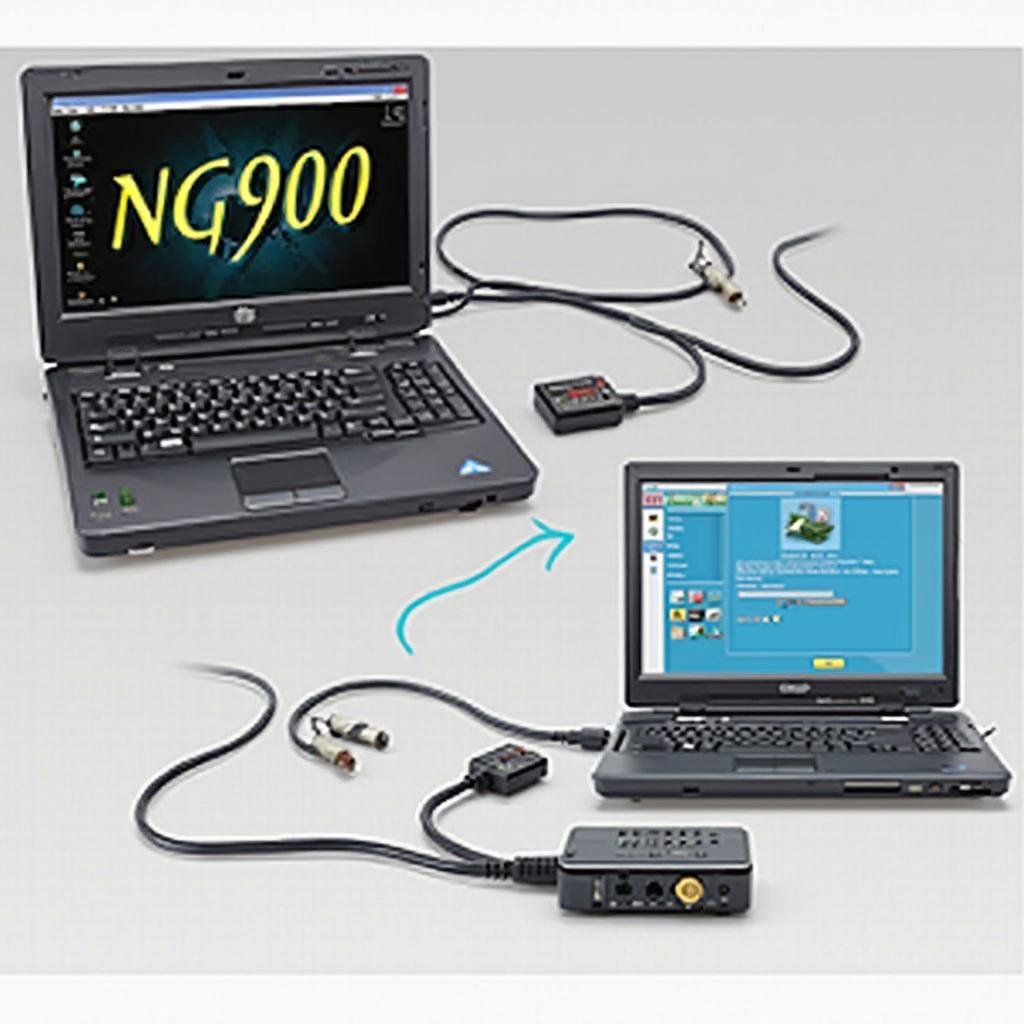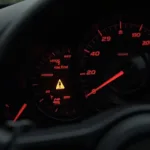Experiencing an NG900 OBD2 slow connection can be frustrating, especially when you’re trying to diagnose a car issue quickly. This article delves into the common reasons why your NG900 might be slow and provides practical solutions to get you back on track. Whether you’re a professional mechanic or a DIY enthusiast, understanding these potential issues and their fixes can save you valuable time and effort.
Why is My NG900 OBD2 So Slow?
Several factors can contribute to a slow NG900 OBD2 connection. These range from simple software glitches to more complex hardware issues. Identifying the root cause is the first step towards resolving the problem.
Software Issues
Sometimes, the problem lies not with the hardware, but with the software. Outdated firmware in your NG900 or incompatible software on your diagnostic device can lead to communication bottlenecks.
- Outdated Firmware: Ensure your NG900 is running the latest firmware version. Manufacturers often release updates that improve performance and compatibility.
- Incompatible Software: Check that the diagnostic software you’re using is compatible with the NG900 and your vehicle’s make and model. Using outdated or incorrect software can significantly impact communication speed.
- Driver Conflicts: Driver conflicts on your computer can also interfere with the NG900’s performance. Make sure you have the correct drivers installed and that they are up-to-date.
Hardware Problems
If software isn’t the culprit, then hardware issues might be slowing down your NG900 OBD2 connection.
- Faulty OBD2 Port: A damaged or loose OBD2 port on your vehicle can disrupt communication. Inspect the port for any bent pins or debris.
- Damaged Cable: A frayed or damaged OBD2 cable can also cause communication problems. Check the cable for any visible damage and consider replacing it if necessary.
- NG900 Malfunction: In rare cases, the NG900 itself may be faulty. If you’ve ruled out other potential issues, contact the manufacturer for support.
Vehicle Issues
Sometimes the issue stems from the vehicle itself, not the NG900.
- Low Vehicle Battery: A low vehicle battery can sometimes cause communication problems with the OBD2 system. Ensure your vehicle’s battery is properly charged.
- ECU Problems: In some cases, a faulty Engine Control Unit (ECU) can lead to slow OBD2 communication. This is a more complex issue that may require professional diagnosis.
Troubleshooting NG900 OBD2 Slow Connection
Here are some steps you can take to troubleshoot a slow NG900 OBD2 connection:
- Check the Obvious: Start by checking the OBD2 cable and port for any visible damage. Ensure the cable is securely connected to both the NG900 and the vehicle’s OBD2 port.
- Restart Everything: Try restarting both your diagnostic device and the vehicle. This can often resolve minor software glitches.
- Update Firmware and Software: Update the NG900’s firmware and ensure your diagnostic software is up-to-date and compatible.
- Check Vehicle Battery: Make sure your vehicle’s battery is fully charged.
- Test with Another Vehicle: If possible, try connecting the NG900 to another vehicle to rule out a problem with the NG900 itself.
- Consult a Professional: If you’ve tried all the above steps and are still experiencing a slow connection, consult a qualified mechanic for further diagnosis.
Expert Insights
“A slow NG900 OBD2 connection can often be traced back to simple issues like a loose cable or outdated software,” says John Miller, a certified automotive technician with over 20 years of experience. “Taking the time to systematically troubleshoot these potential problems can save you a lot of headaches.”
“Don’t overlook the importance of keeping your NG900’s firmware updated,” adds Sarah Chen, an automotive electronics specialist. “Firmware updates often include performance improvements and bug fixes that can significantly impact communication speed.”
Conclusion
An NG900 obd2 slow connection can be a nuisance, but by understanding the potential causes and following the troubleshooting steps outlined above, you can often resolve the issue quickly. Regularly updating your firmware and software, checking your hardware for damage, and ensuring your vehicle’s battery is charged can help prevent future slowdowns.
FAQ
- Why is my NG900 OBD2 so slow? Several factors, including outdated firmware, faulty cables, and a low vehicle battery, can cause slow connection speeds.
- How do I update my NG900 firmware? Refer to the manufacturer’s instructions for specific guidance on updating your device’s firmware.
- What should I do if my OBD2 port is damaged? Consult a qualified mechanic to repair or replace a damaged OBD2 port.
- Can a low vehicle battery affect OBD2 communication? Yes, a low battery can sometimes interfere with OBD2 communication.
- What if I’ve tried everything and my NG900 is still slow? Contact the manufacturer for support or consult a qualified mechanic.
- How can I ensure my NG900 stays updated? Regularly check the manufacturer’s website for firmware and software updates.
- Is the NG900 compatible with all vehicle makes and models? Check the manufacturer’s compatibility list to ensure the NG900 works with your specific vehicle.
For further assistance, please contact us via WhatsApp: +1(641)206-8880 or Email: [email protected]. Our customer support team is available 24/7.

